Fleurs du Mal Magazine



E d w a r d T h o m a s
(1878-1917)
Five Poems
A Tale
There once the walls
Of the ruined cottage stood.
The periwinkle crawls
With flowers in its hair into the wood.
In flowerless hours
Never will the bank fail,
With everlasting flowers
On fragments of blue plates, to tell the tale.
But these things also
But these things also are Spring’s —
On banks by the roadside the grass
Long-dead that is greyer now
Than all the Winter it was;
The shell of a little snail bleached
In the grass; chip of flint, and mite
Of chalk; and the small bird’s dung
In splashes of purest white:
All the white things a man mistakes
For earliest violets
Who seeks through Winter’s ruins
Something to pay Winter’s debts,
While the North blows, and starling flocks
By chattering on and on
Keep their spirits up in the mist,
And Spring’s here, Winter’s not gone.
As the team’s head-brass
As the team’s head-brass flashed out on the turn
The lovers disappeared into the wood.
I sat among the boughs of the fallen elm
That strewed the angle of the fallow, and
Watched the plough narrowing a yellow square
Of charlock. Every time the horses turned
Instead of treading me down, the ploughman leaned
Upon the handles to say or ask a word,
About the weather, next about the war.
Scraping the share he faced towards the wood,
And screwed along the furrow till the brass flashed
Once more.
The blizzard felled the elm whose crest
I sat in, by a woodpecker’s round hole,
The ploughman said. ‘When will they take it away?’
‘When the war’s over.’ So the talk began –
One minute and an interval of ten,
A minute more and the same interval.
‘Have you been out?’ ‘No.’ ‘And dont’want to, perhaps?’
‘If I could only come back again, I should.
I could spare an arm. I shouldn’t want to lose
A leg. If I should lose my head, why, so,
I should want nothing more. Have many gone
From here?’ ‘Yes.’ ‘Many lost?’ ‘Yes, a good few.
Only two teams work on the farm this year.
One of my mates is dead. The second day
In France they killed him. It was back in March,
The very night of the blizzard, too. Now if
He had stayed here we should have moved the tree.’
‘And I should not have sat here. Everything
Would have been different. For it would have been
Another world.’Ay, and a better, though
If we could see all all might seem good.’ Then
The lovers came out of the wood again:
The horses started and for the last time
I watched the clods crumble and topple over
After the ploughshare and the stumbling team.
Liberty
The last light has gone out of the world, except
This moonlight lying on the grass like frost
Beyond the brink of the tall elm’s shadow.
It is as if everything else had slept
Many an age, unforgotten and lost —
The men that were, the things done, long ago,
All I have thought; and but the moon and I
Live yet and here stand idle over a grave
Where all is buried. Both have liberty
To dream what we could do if we were free
To do some thing we had desired long,
The moon and I. There’s none less free than who
Does nothing and has nothing else to do,
Being free only for what is not to his mind,
And nothing is to his mind. If every hour
Like this one passing that I have spent among
The wiser others when I have forgot
To wonder whether I was free or not,
Were piled before me, and not lost behind,
And I could take and carry them away
I should be rich; or if I had the power
To wipe out every one and not again
Regret, I should be rich to be so poor.
And yet I still am half in love with pain,
With what is imperfect, with both tears and mirth,
With things that have an end, with life and earth,
And this moon that leaves me dark within the door.
Over the hills
Often and often it came back again
To mind, the day I passed the horizon ridge
To a new country, the path I had to find
By half-gaps that were stiles once in the hedge,
The pack of scarlet clouds running across
The harvest evening that seemed endless then
And after, and the inn where all were kind,
All were strangers. I did not know my loss
Till one day twelve months later suddenly
I leaned upon my spade and saw it all,
Though far beyond the sky-line. It became
Almost a habit through the year for me
To lean and see it and think to do the same
Again for two days and a night. Recall
Was vain: no more could the restless brook
Ever turn back and climb the waterfall
To the lake that rests and stirs not in its nook,
As in the hollow of the collar-bone
Under the mountain’s head of rush and stone.
Edward Thomas: Five Poems
kempis poetry magazine
.jpg)
More in: Thomas, Edward


J A C E v a n d e V e n

N i c k J. S w a r t h
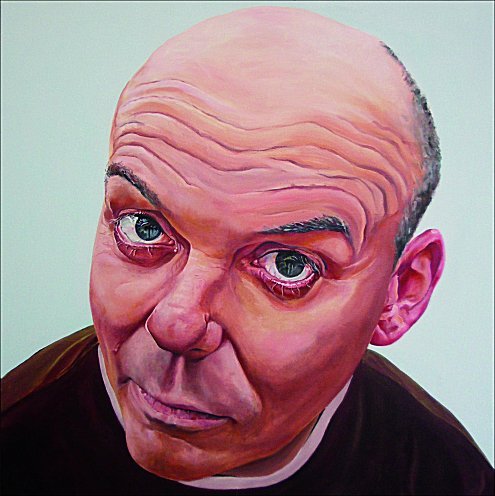
F r a n k v a n P a m e l e n
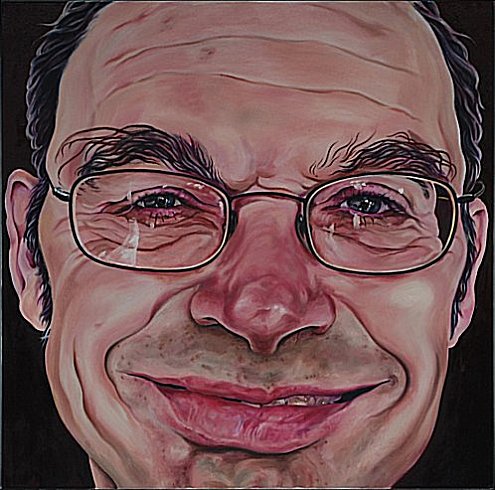
C e e s v a n R a a k
Gallery of Poets’ Portraits
Paintings Ivo van Leeuwen
Stadsdichters Tilburg / Poets of the city of Tilburg
JACE van de Ven (2003-2005)
Nick J. Swarth (2005-2007)
Frank van Pamelen (2007-2009)
Cees van Raak (2009-2011)
fleursdumal.nlmagazine
© Ivo van Leeuwen
.jpg)
More in: City Poets / Stadsdichters, Ivo van Leeuwen, Poets' Portraits
.jpg)
.jpg)
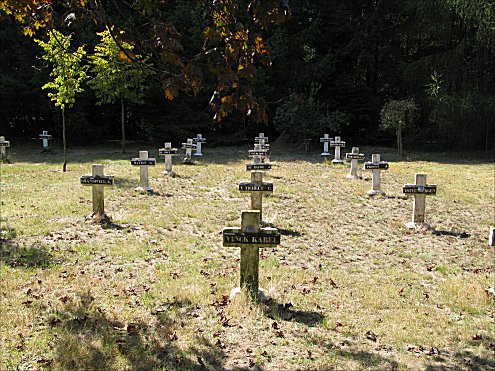
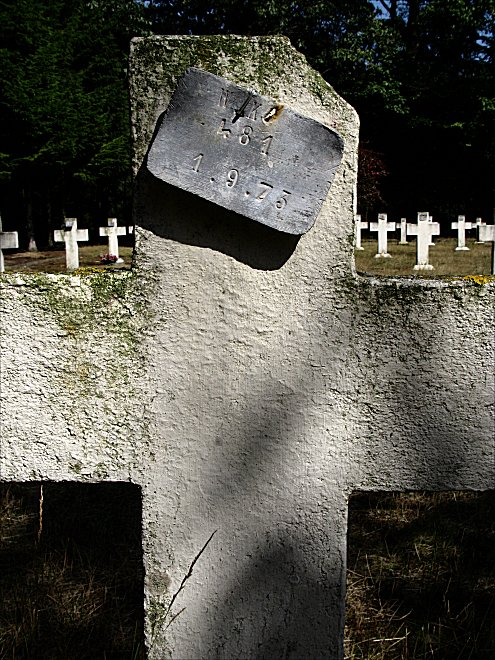
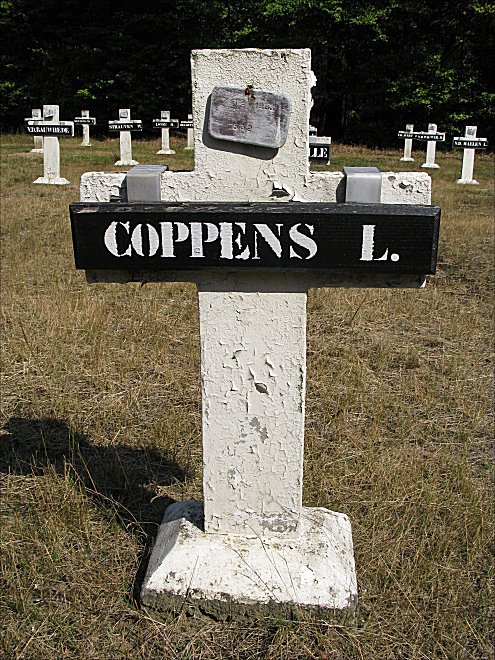
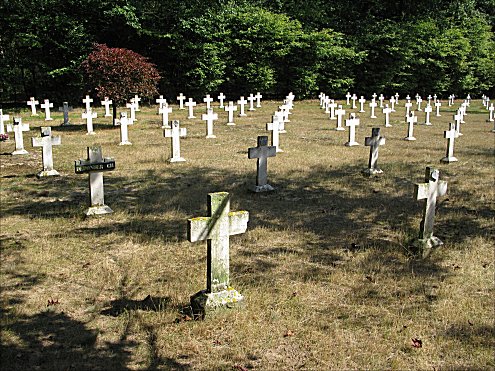
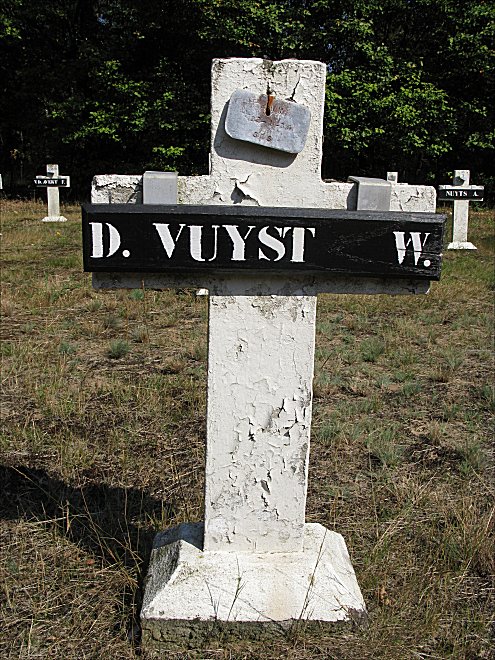
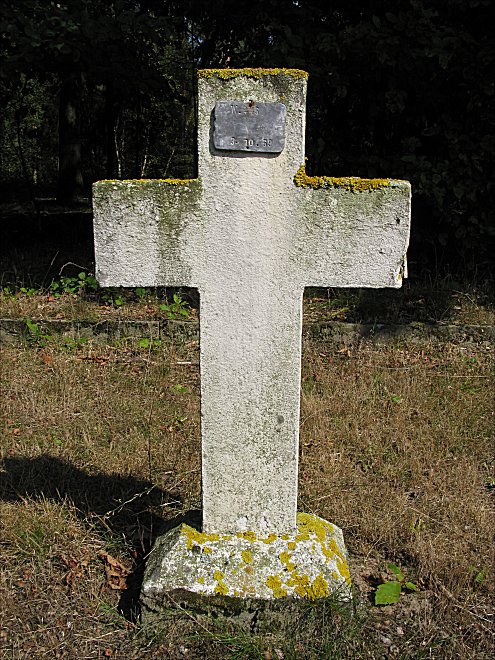
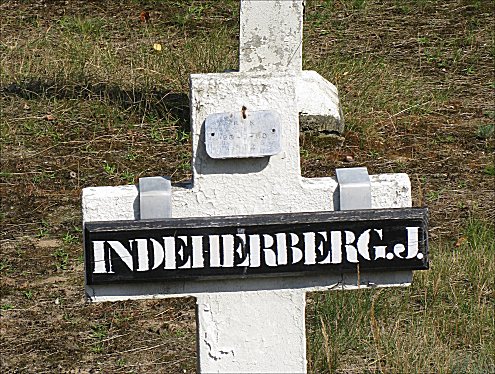
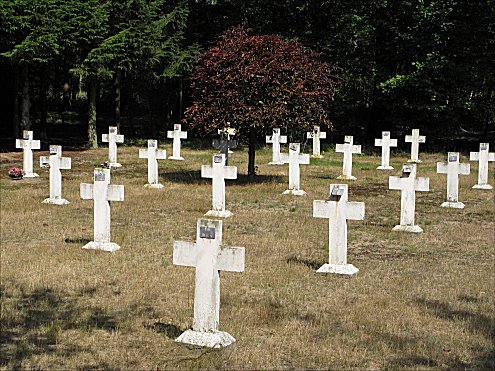
Landloperskerkhof Wortel & Merksplas (B)
Van de landbouwkolonies die in 1822 in Merksplas en Wortel (B) werden opgericht, was Wortel een "vrije kolonie", bestaande uit een 125-tal hoevetjes. Het project mislukte, en na de Belgische Onafhankelijkheid werden alle boerderijen gesloopt. Vanaf 1870 koopt de Belgische Staat alle gronden en gebouwen op beide plaatsen op. Tot 1893 stonden alle "rijksweldadigheidskoloniën" in deze regio onder Hoogstraats bestuur. Daarna kreeg Merksplas een eigen directie en fungeerde Wortel als een soort bijhuis. Het was een "maison de refuge" voor bedelaars en landlopers die in de landbouw werden ingezet. Vanaf 1945 komt Wortel onder toezicht van het Bestuur der Strafinrichtingen. Sinds 1955 functioneert de instelling onafhankelijk.
Na de afschaffing van de Wet op de Landloperij in 1993 wordt Wortel een strafinrichting met een halfopen regime (arbeid in werkplaatsen die buiten het cellulair gedeelte gelegen zijn). Men begint aan de bouw van een nieuwe cellulaire afdeling die in 1996 in gebruik genomen wordt. Zo biedt de gevangenis tegenwoordig plaats aan 150 gedetineerden. Het betreft een groep veroordeelden met straffen onder de 3 jaar die beschikken over een geldig verblijfsstatuut in België. Ook veroordeelden tot meer dan 3 jaar die reeds genieten van penitentiair verlof kunnen naar Wortel worden doorverwezen. Het merendeel van de misdrijven betreft diefstallen en drugsdelicten. Er verblijven in Wortel nog 10 landlopers (hun gemiddelde leeftijd is 64!) die vrijwillig het regime van de strafinrichting hebben aanvaard.
Het kerkhof, met zo’n 170 witte betonnen kruisjes, is het merkwaardigste overblijfsel van de landloperskolonie. Op de kruisjes hangt een loden plaatje met een nummer, een naam, een datum van geboorte en overlijden. In zeldzame gevallen staat er zelfs geen naam, alleen een nummer en de letters RWK (afkorting van rijksweldadigheidskolonie). Het zijn de graven van de eenzaamsten onder landlopers, degenen die ’zonder familie’ zijn gestorven. Enkele graven dateren van 2003. Dat komt doordat de oudste landlopers na de afschaffing van de landloperij in 1993 het ’voorrecht’ kregen in de gebouwen van de kolonie hun laatste levensdagen te slijten.
![]()
In Nederland werden landlopers lange tijd
naar de strafkolonie
Veenhuizen in Drenthe gezonden.
Uit die tijd is dit gedichtje overgeleverd:
Veenhuizen
Acht lotgenoten bewezen hem de laatste eer
En lieten hem in de diepe zandkuil neer.
De dominee bad het Onze Vader aan zijn graf
D’ administratie voerde hem van de sterkte af.
In een zwartgeverfde, vurenhouten kist
Rust hij nu, die door niemand wordt gemist.
Op het ‘Vierde’ kwam er weer een bij
‘t Werd nummer tien op de zesde rij.
![]()
Landloperskerkhof Wortel & Merksplas 2 – België
Begraafplaats Wortel photos KEMP=MAG
![]()
kempis poetry magazine
More in: Galerie des Morts, Historia Belgica
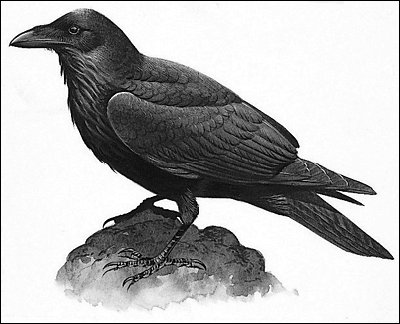
Guido Gezelle
(1830-1899)
De rave
Met zwart- en zwaren zwaai aan ‘t werken door de grauwe,
de zonnelooze locht, ik de oude rave aanschouwe;
die, roeiende op en dóór den schaars gewekten wind,
gelijk een dwalend spook, eilaas geen’ ruste en vindt.
Ze is zwart gebekt, gepoot, gekopt in ‘t zwarte; als kolen,
zoo staan heure oogen zwart, in hun’ twee zwarte holen
te blinken; rouwgewaad en duister doek omvangt
het duister wangedrocht, dat in de nevelen hangt.
Ze is stom! Ze ‘n uit geen woord en ‘t waaien van heur’ slagers
en hoort gij niet. Alzoo de zwarte doodendragers
stilzwijgend gaan, zoo gaat zij zwijgend op de lucht,
en wendt alhier aldaar heur’ zwarte ravenvlucht.
Wat wilt gij, duister spook! Waar gaat gij? Van wat steden
zijt gij, met damp en doom en ‘s winters duisterheden,
alhierwaards aangewaaid? Wat boodschap brengt gij? Van
wat rampe of tegenspoed zijt gij de bedeman?
Is ziek- of zuchtigheid, uit ‘s noordens grauwe landen;
is sterfte wederom, is hongersnood op handen?
Is moordaanslag, verraad de zin van uw vermaan;
of gaat de muil misschien des afgronds opengaan?
Geen woord! Dan, weg van hier, onzalige: gaat varen
alwaar nooit zonne en rijst; alwaar de grimme baren
staan ijsvaste overende, als rotsen; en waar nooit
noch blom noch blad den buik van moeder aarde en tooit!
Gaat aan! Of spreekt een woord, zoo de andere vogeldieren
te zomertijde doen, die in de bosschen zwieren:
ja, ‘s winters, als de snee’ heur laken heeft gespreid,
nog vinkt en klinkt het hier, vol vogelvlijtigheid.
En gij! De rave trekt, met trage vederslagen,
voorbij mij, zwaar en zwart gelijk nen kerkhofwagen,
en roept mij, onverwachts, terwijl zij henenvaart,
al in één enkel woord, heur’ winterboodschap: ‘Spaart!’
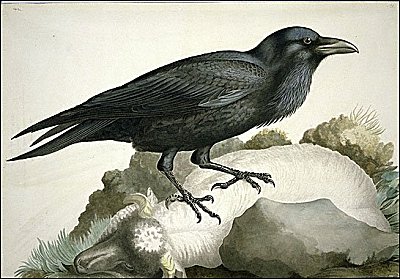
Guido Gezelle: De rave
kempis poetry magazine
![]()
More in: Department of Ravens & Crows, Gezelle, Guido
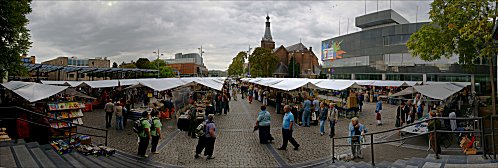

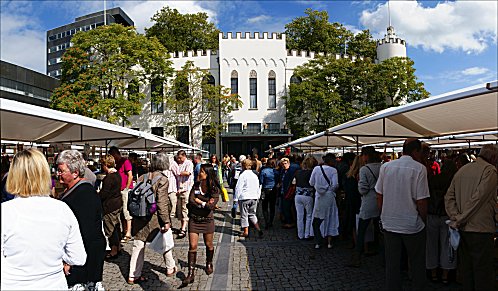
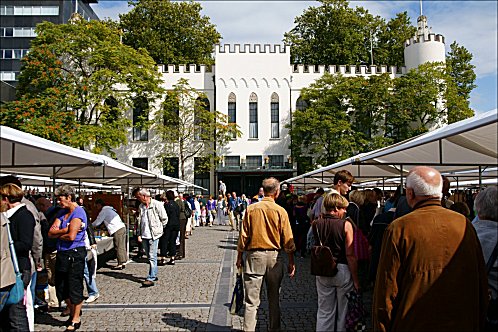
.jpg)
.jpg)
.jpg)
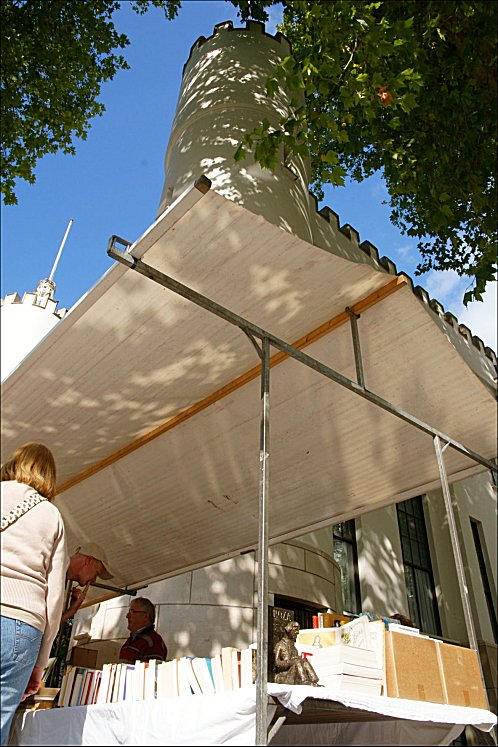
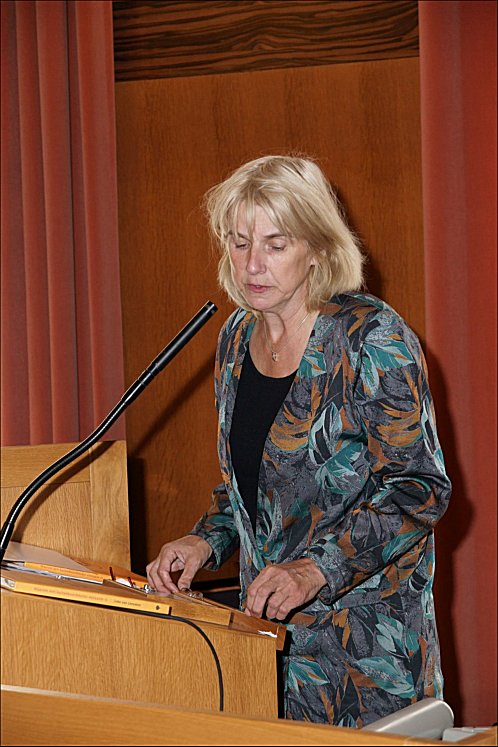
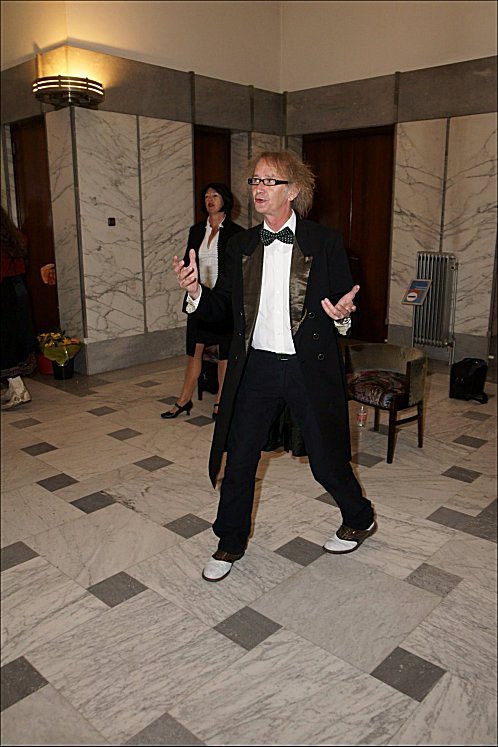
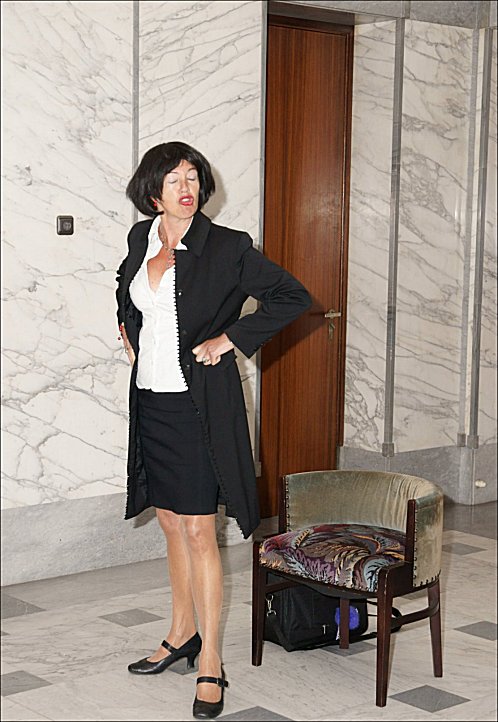
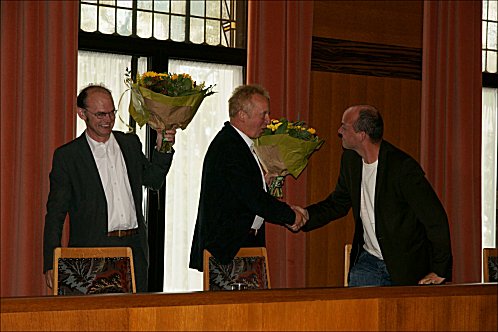
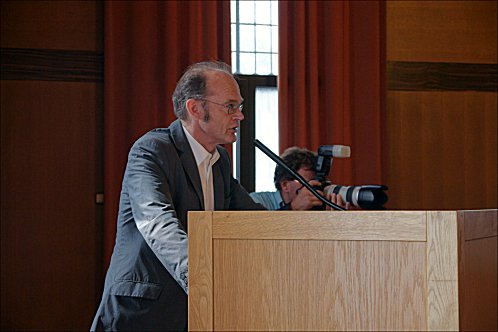
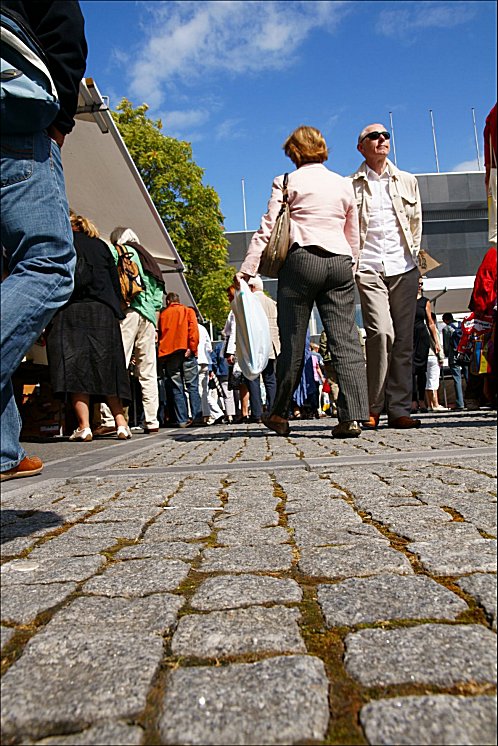
Boeken rond het Paleis Tilburg
30 augustus 2009
© Photos Hans Hermans
fleursdumal.nl magazine
Meer foto’s op de Website van Stichting Cools
More in: - Book Lovers, Hans Hermans Photos

Paul Verlaine
(1844-1896)
S p l e e n
Les roses étaient toutes rouges
Et les lierres étaient tout noirs.
Chère, pour peu que tu ne bouges,
Renaissent tous mes désespoirs.
Le ciel était trop bleu, trop tendre,
La mer trop verte et l’air trop doux.
Je crains toujours, – ce qu’est d’attendre !
Quelque fuite atroce de vous.
Du houx à la feuille vernie
Et du luisant buis je suis las,
Et de la campagne infinie
Et de tout, fors de vous, hélas !
Paul Verlaine: Spleen
kempis poetry magazine
![]()
More in: Archive U-V, Verlaine, Paul
.jpg)
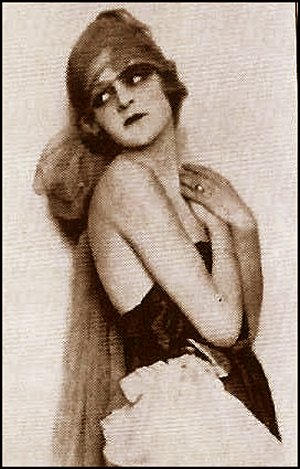



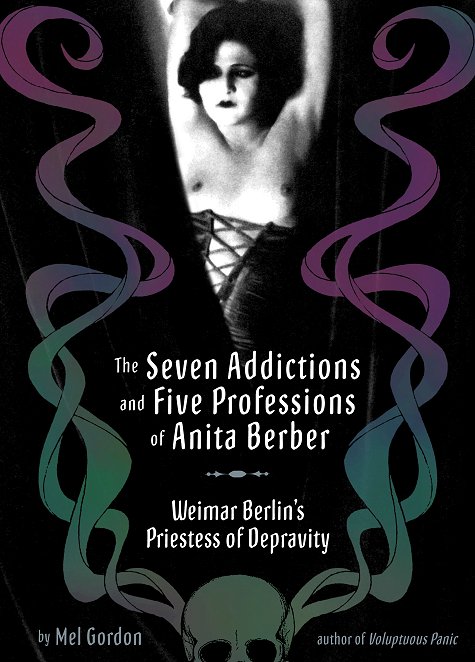
Galerie Anita Berber – 6
Anita Berber (June 10, 1899 – November 10, 1928) was a German dancer, actress and writer. Anita Berber was painted by many artist, among them Otto Dix.
Her lover was dancer Sebastian Droste. In 1922, Berber and Droste published a book of poems, photographs, drawings: Kokain. Berber’s cocaine addiction and bisexuality were matters of public chatter. She was allegedly the sexual slave of a woman and the woman’s 15-year-old daughter. She could often be seen in Berlin’s hotel lobbies, nightclubs and casinos, naked apart from a sable wrap and a silver brooch filled with cocaine. Besides being a cocaine addict, she was an alcoholic.
Anita Berber died of tubercolosis, at the age of 29, on November 10, 1928 in a Kreuzberg hospital and was buried at St. Thomas cemetery in Neukölln.
In 1987 film Rosa von Praunheim made a film titled: Anita – Tänze des Lasters.
fleursdumal.nl magazine
More in: Anita Berber, Anita Berber, Berber, Anita, DANCE & PERFORMANCE
.jpg)

Monica Richter: Gesicht im Wald -2
kempis poetry magazine
More in: Monica Richter, Richter, Monica
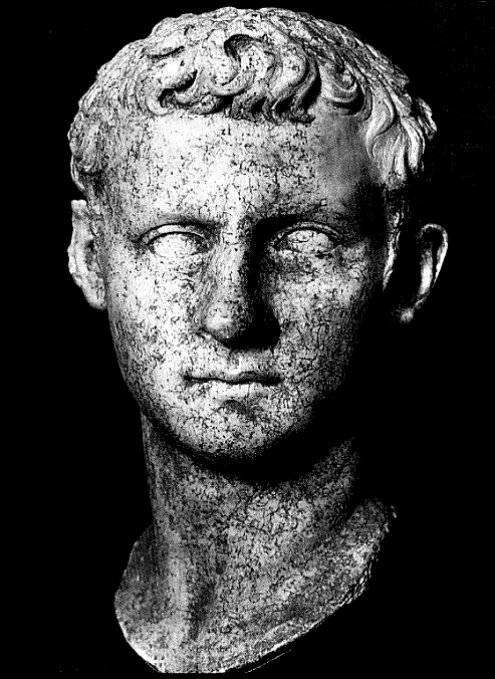
Gérard de Nerval
(1808-1855)
Caligula – I er chant
L’hiver s’enfuit ; le printemps embaumé
Revient suivi des Amours et de Flore ;
Aime demain qui n’a jamais aimé,
Qui fut amant, demain le soit encore !
Hiver était le seul maître des temps,
Lorsque Vénus sortit du sein de l’onde ;
Son premier souffle enfanta le printemps,
Et le printemps fit éclore le monde.
L’été brûlant a ses grasses moissons,
Le riche automne a ses treilles encloses,
L’hiver frileux son manteau de glaçons,
Mais le printemps a l’amour et les roses.
L’hiver s’enfuit, le printemps embaumé
Revient suivi des Amours et de Flore ;
Aime demain qui n’a jamais aimé,
Qui fut amant, demain le soit encore !
Caligula – II ème chant
De roses vermeilles
Nos champs sont fleuris,
Et le bras des treilles
Tend à nos corbeilles
Ses raisins mûris.
Puisque chaque année
Jetant aux hivers
Sa robe fanée,
Renaît couronnée
De feuillages verts,
Puisque toute chose
S’offre à notre main
Pour qu’elle en dispose,
Effeuillons la rose,
Foulons le raisin ;
Car le temps nous presse
D’un constant effort ;
Hier la jeunesse,
Ce soir la vieillesse,
Et demain la mort.
Étrange mystère !
Chaque homme à son tour
Passe solitaire
Un jour sur la terre ;
Mais pendant ce jour,
De roses vermeilles
Nos champs sont fleuris,
Et le bras des treilles
Tend à nos corbeilles
Ses raisins mûris.
Caligula – III ème chant
César a fermé la paupière ;
Au jour doit succéder la nuit ;
Que s’éteigne toute lumière,
Que s’évanouisse tout bruit.
A travers ces arcades sombres,
Enfants aux folles passions,
Disparaissez comme des ombres,
Fuyez comme des visions.
Allez, que le caprice emporte
Chaque àme selon son désir,
Et que, close après vous, la porte
Ne se rouvre plus qu’au plaisir.
Gérard de Nerval: Caligula
fleursdumal.nl magazine
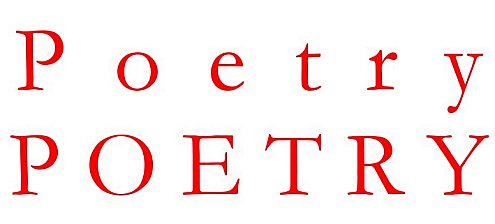
More in: Archive M-N, Nerval, Gérard de, Nerval, Gérard de
.jpg)
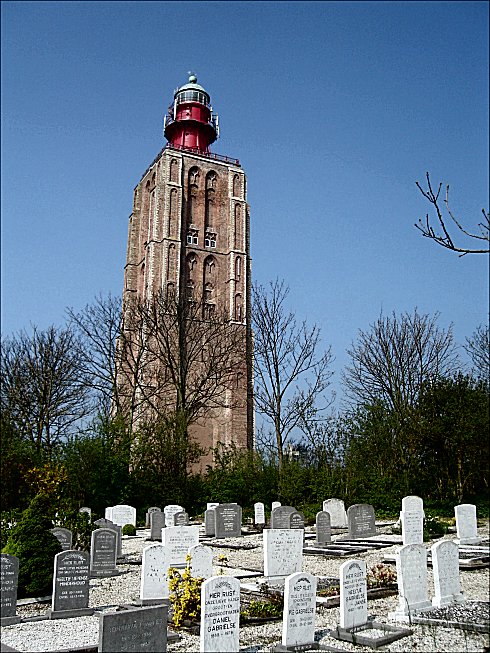

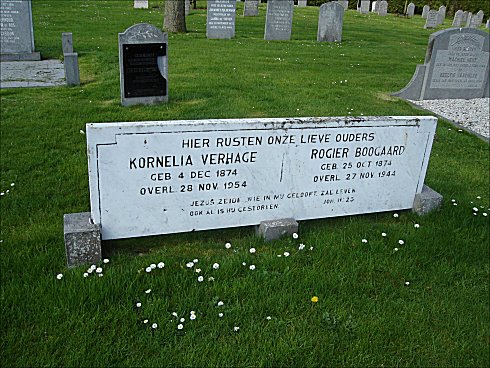
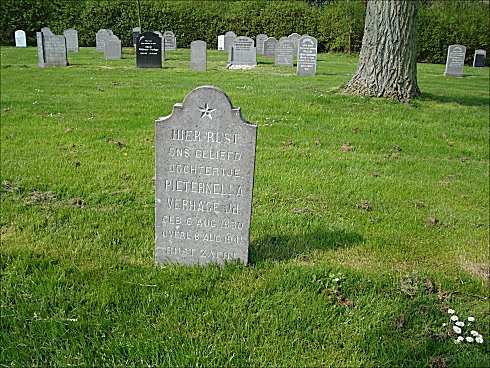
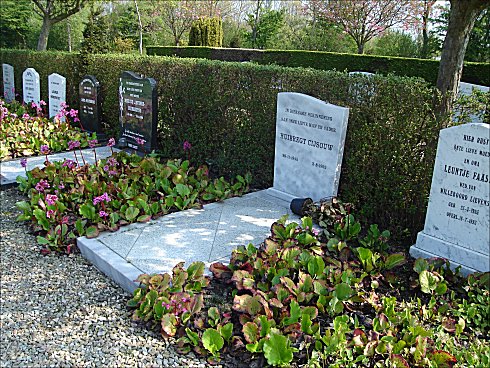
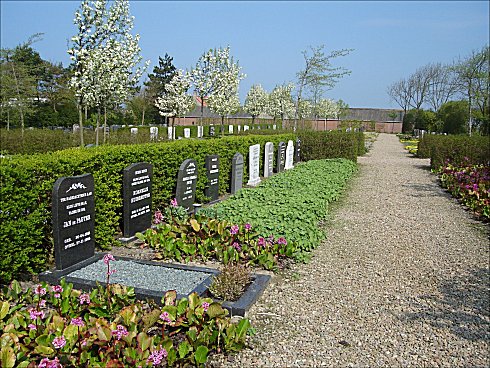
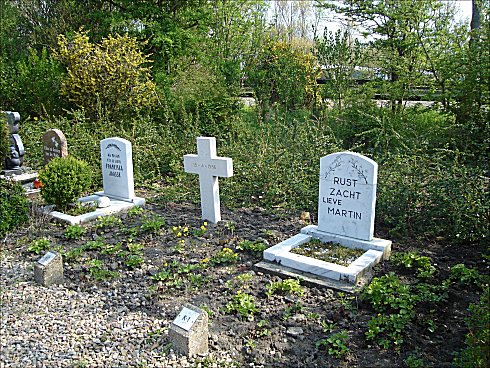
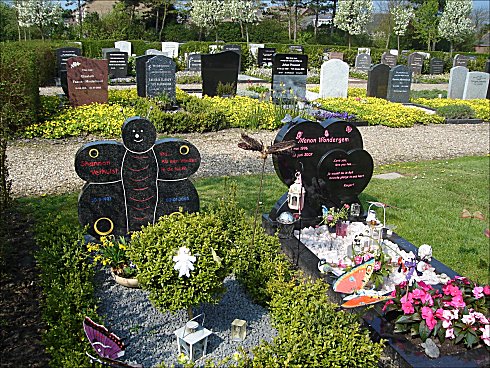
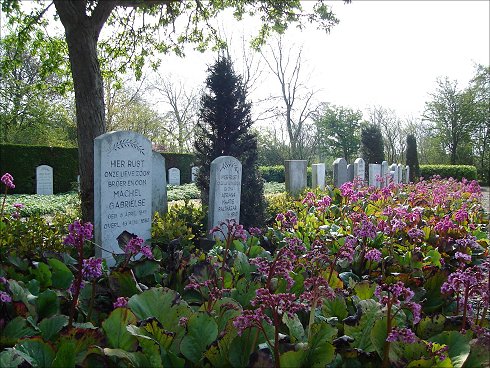
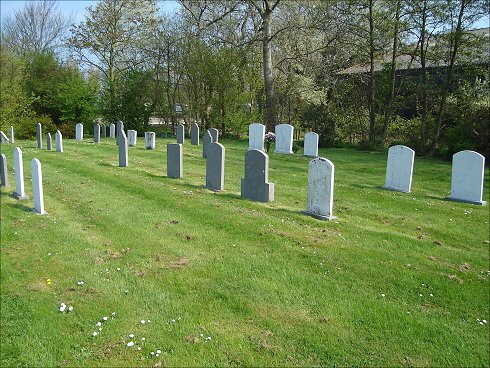

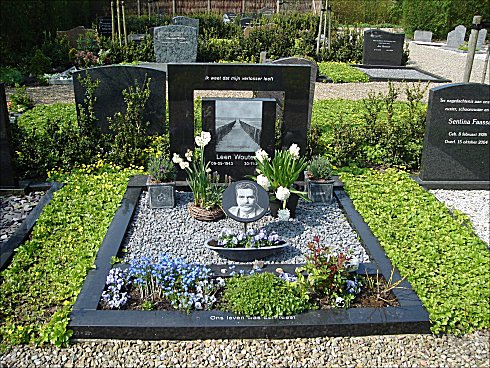
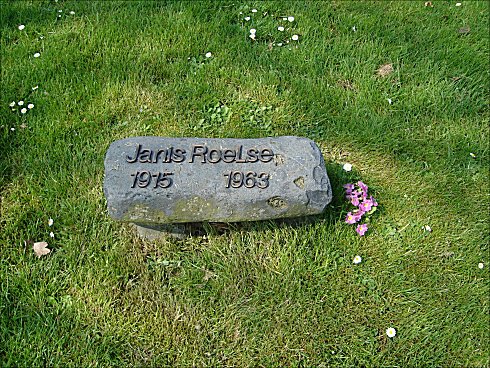
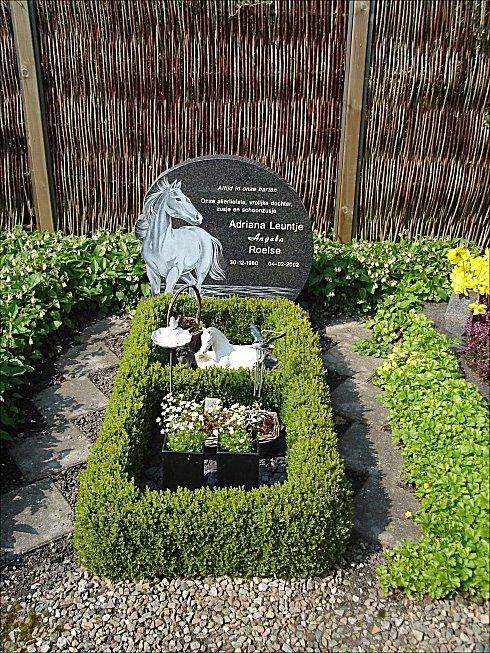
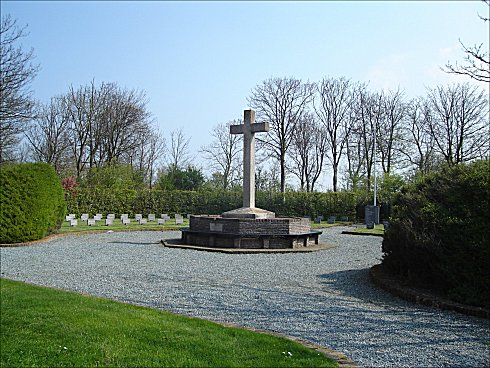

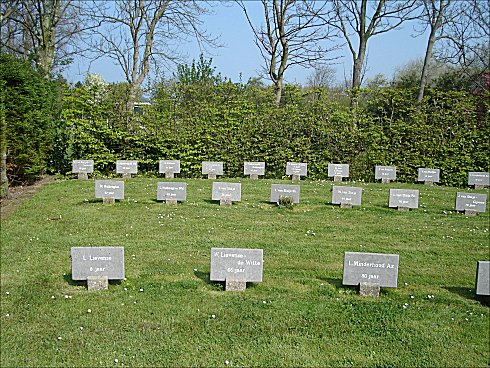
Galerie des Morts X
Les Morts de Westkapelle NL
Photos Kempis
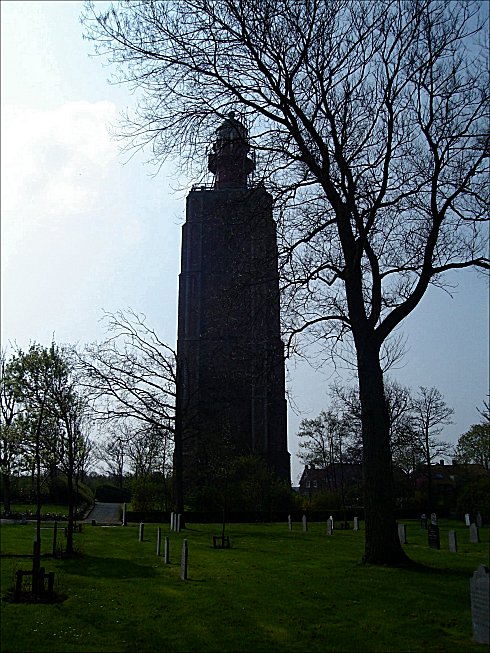
kempis poetry magazine – magazine for art & literature
More in: Galerie des Morts

Eerste bericht
Zo zullen geen zoete rijmpjes bakken, noch zal
klinken lang-zal-hij-leven-veel-zal-zij-geven.
Wel dient getuchtigd eenieder die te vroeg aan
zijn klokkenspel hangt, wel zal iedere wethakker
milieugesust gespietst, wel de koe bij de horens.
Zo is niets tilburgs mij vreemd, ik besef
poëtisch correct dat de stad een sprookje vol
lusten en lasten, met donkere steegjes, met
malloten, met meisjes, met verhalen, met kunsten,
met bruggen te slaan met woorden die spelevaren.
Zo waad ik stadsdichter door vandaag en gister,
laat stenen vertellen, straten verdichten.
Zo sta ik op een zeepkist vol vreugde en
verdriet, volmonds en dronken, want de stad
is mijn woord, mijn brood, mijn wijn, mijn vrouw.
Cees van Raak
Vierde stadsdichter Tilburg, 2009-2011
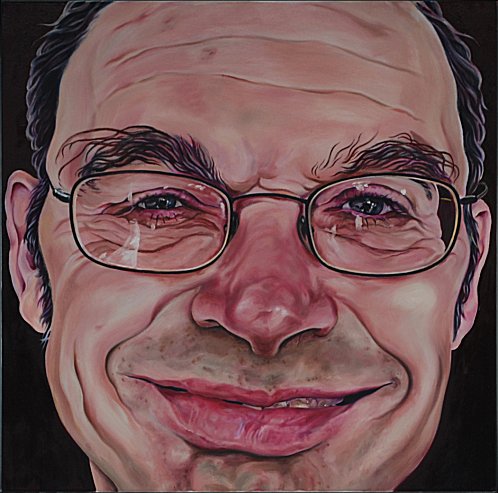
P a i n t i n g I v o v a n L e e u w e n
© painting Ivo van Leeuwen / poem Cees van Raak
![]()
More in: City Poets / Stadsdichters, Ivo van Leeuwen, Raak, Cees van
.jpg)

Monica Richter: Gesicht im Wald -1
kempis poetry magazine
More in: Monica Richter, Richter, Monica
Thank you for reading Fleurs du Mal - magazine for art & literature